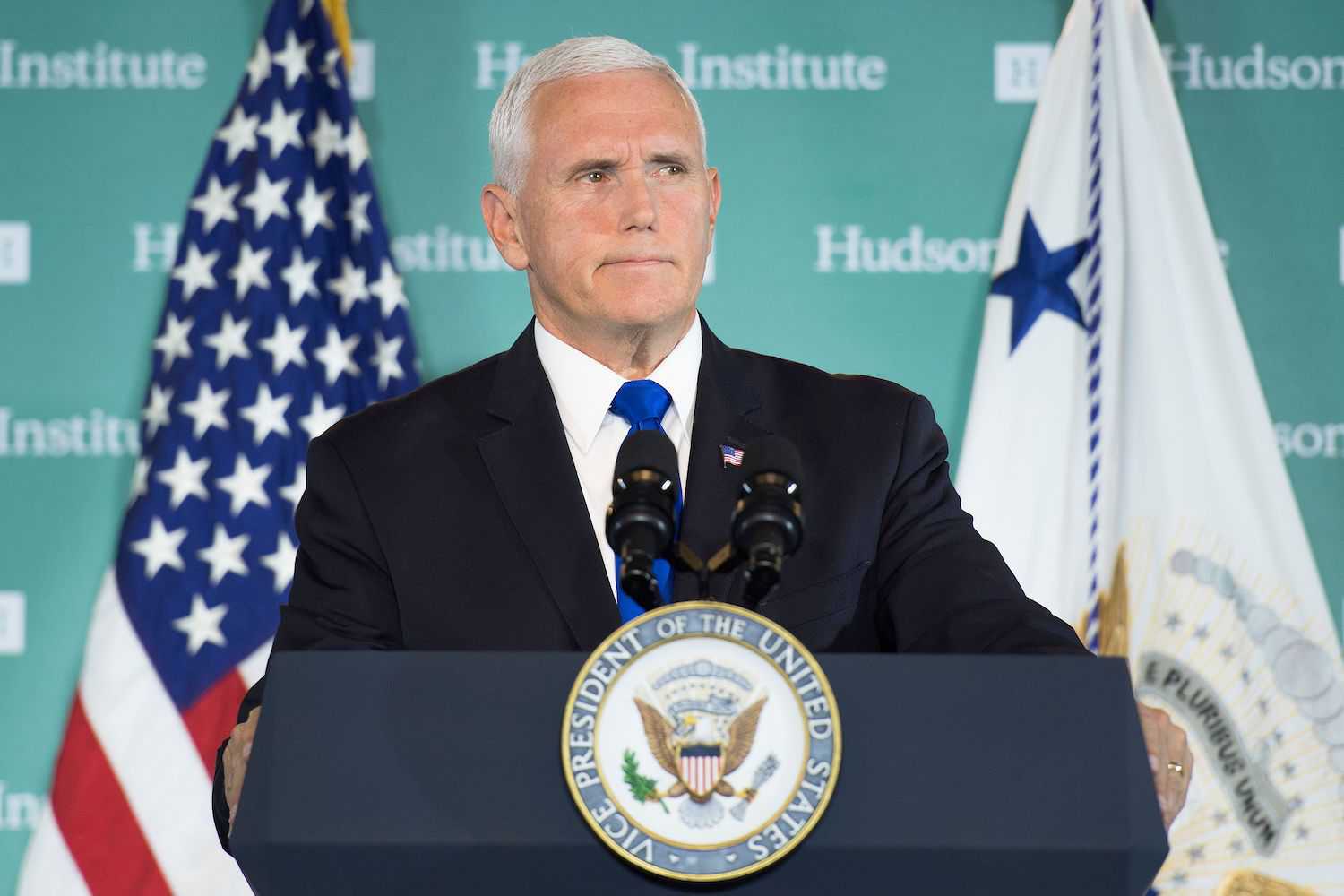It’s No Longer Just a Trade War Between the U.S. and China

he U.S. confrontation with China that has been ramping up over the past year due to heightened trade tensions, military showdowns, and diplomatic ill will escalated to new levels on Thursday with a double-barreled assault on Beijing’s growing economic and geopolitical heft.
U.S. Vice President Mike Pence delivered the administration’s most searing indictment yet of the threat that China’s rise poses to U.S. interests generally—and the Trump administration in particular—in a much-anticipated speech Thursday. The same day, a Bloomberg News report citing current and former U.S. intelligence officials alleged that Chinese army elements hacked Chinese-manufactured hardware used by dozens of big U.S. technology firms and government entities, raising serious questions about the security of Chinese-made gear and the country’s future role in the global high-tech supply chain.
Pence, in a speech meant to highlight what he called China’s pushback against the Trump administration’s tough stance toward Beijing, attacked China’s “meddling in America’s democracy,” though he offered no new evidence for the administration’s claim that Beijing is interfering in next month’s U.S. midterm elections. Among a litany of other complaints about Chinese behavior, Pence also specifically denounced China’s state-led trade and economic practices that “have built Beijing’s manufacturing base, at the expense of its competitors—especially America.”
The speech was a resounding rejection of the policy that U.S. leaders have generally pursued for more than two decades, seeking greater trade ties with Beijing, bringing the country into the World Trade Organization, and investing heavily in its economic modernization.
“America had hoped that economic liberalization would bring China into greater partnership with us and with the world,” Pence said in his speech at the Hudson Institute in Washington. “Instead, China has chosen economic aggression, which has in turn emboldened its growing military.”
The administration on Thursday also accused China of deliberately trying to undermine U.S. national security by targeting the nation’s defense industrial base. A Pentagon-led review of the defense industry, ordered by Trump, pegs China as one of the primary culprits in what it called “predatory practices.” These include “state-sponsored dumping, public subsidies, and intellectual property theft,” which the report said “are destroying commercial product lines and markets of domestic [Defense Department] suppliers.”
That report and the vice president’s speech reflected the Trump administration’s growing view of China as a rival to be confronted rather than a rising power to be embraced and co-opted into the international system. It also suggested that what began as a tariff war is hardening into a long-term standoff on many levels.
“A strategy seems to be emerging that is much more centered on competition and the notion of China as a rival,” said Elsa Kania of the Center for a New American Security. She called the adjustment “appropriate, even overdue,” but stressed the need for continued cooperation and engagement given the “risks of miscalculation between great powers.”
But the vice president’s rhetorical broadside may not have been the day’s biggest blow to Beijing’s ambitions. Also on Thursday, a Bloomberg News report suggested that the Chinese are actively engaged in just the sort of the great-power rivalry outlined by Pence.
The outlet reported that People’s Liberation Army units allegedly inserted a tiny, modified component onto some hardware manufactured at a Chinese factory for a U.S. technology supplier to huge firms such as Apple and Amazon. The illicit component could reportedly give Chinese authorities the ability to eavesdrop on or even commandeer the computer gear used in a host of applications. U.S. officials had been investigating the allegations of Chinese tampering with gear made in mainland China for at least four years, the article said.
Apple and Amazon both vehemently denied the article’s assertions and said that they had found no indication that their servers were compromised.
Source: https://foreignpolicy.com
Previous Story
- Bangladesh to be 26th largest economy
- US auto sales fell by 4 percent in...
- US for wider trade ties with Bangladesh
- Bangladesh demands better prices for garment items
- US, Bangladesh hold talks on trade, labour reforms
- Edible oil export rises
- Stock Market Setting Up For A Bigger Pullback...
- The Day The Stock Market Music Died